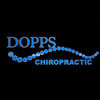Supporting Seasonal Allergies: A Clinical Protocol from Dopps Chiropractic
- Dr. Rory Dopps

- Mar 6, 2023
- 2 min read
Updated: Apr 27, 2023

Allergies can be a nuisance for anyone who experiences them. Sneezing, itchy skin, and runny noses can put a damper on anyone's day. However, allergies can be particularly challenging for those with allergic rhinitis, seasonal allergies, or hay fever. Fortunately, there are ways to support your immune system and reduce your symptoms.
At Dopps Chiropractic Clinic, Dr. Rory Dopps recommends a clinical Seasonal Allergies Clinical Protocol that includes lifestyle techniques, diet, and specific nutrients to support a normal immune function and a healthy inflammatory process. Here's what you need to know.
First, it's important to understand the diagnostic biomarkers and clinical indicators of allergies. These can include a positive IgE skin prick test, positive IgE intradermal test, positive IgE blood test, and a peripheral blood absolute eosinophil count. Mild eosinophil counts range from 500 to 1500 cells/uL, moderate counts range from 1,500 to 5,000 cells/uL, and severe counts are greater than 5,000 cells/uL.
From a dietary standpoint, there are a few things you can do to help support your immune system. For example, consuming 1 teaspoon of local, authentic raw honey daily may help prevent allergies and histamine reactions. However, this is not recommended for children under the age of one. Additionally, consuming foods rich in omega-3 fatty acids and vitamin E, such as nuts, spinach, olive oil, sunflower seeds, salmon, and walnuts, may help support your immune system, oxidative stress, inflammation, and histamine reduction. A high-fiber eating pattern can also help support the microbiome.
Dr. Rory Dopps recommends a diverse eating pattern, as higher dietary diversity is associated with an inverse dose-response relationship with allergic diseases, especially in females. Furthermore, if you have a pollen allergy, you may want to consider a trial of an elimination diet. Up to 90% of those with pollen allergies also have an allergy to foods that cross-react with pollens, generally as an oral allergy. The most common cross-reactive foods include apples, carrots, celery, cherries, peaches, soybeans, tree nuts, and peanuts.
There are also lifestyle interventions that can help support your immune system and reduce your allergy symptoms. For example, maintaining an allergen-free, pollution-free indoor environment by keeping windows closed, using air conditioning and/or an air purifier, and vacuuming with a HEPA filtration system can be helpful. Smoking cessation and avoidance of second-hand smoke is also important, as smoking has been shown to be associated with a higher risk of allergies and exacerbation of symptoms.
Creating an adequate sleep schedule is also recommended, as circadian disruptions may affect the immune response and the allergic response. Stress management is also important, as stress has been shown to be associated with allergic reactions, possibly due to an interaction between the central nervous system, the endocrine system, and the immune system. Finally, showering at the end of the day and changing out of clothing that may have collected pollens and other allergens throughout the day can help reduce exposure to outdoor pollution.
By following these protocols, you can help support your immune system and reduce your allergy symptoms. If you're interested in learning more about how Dr. Rory Dopps and the team at Dopps Chiropractic Clinic can help you manage your allergies, visit www.doppskc.com to schedule an appointment.




Comments